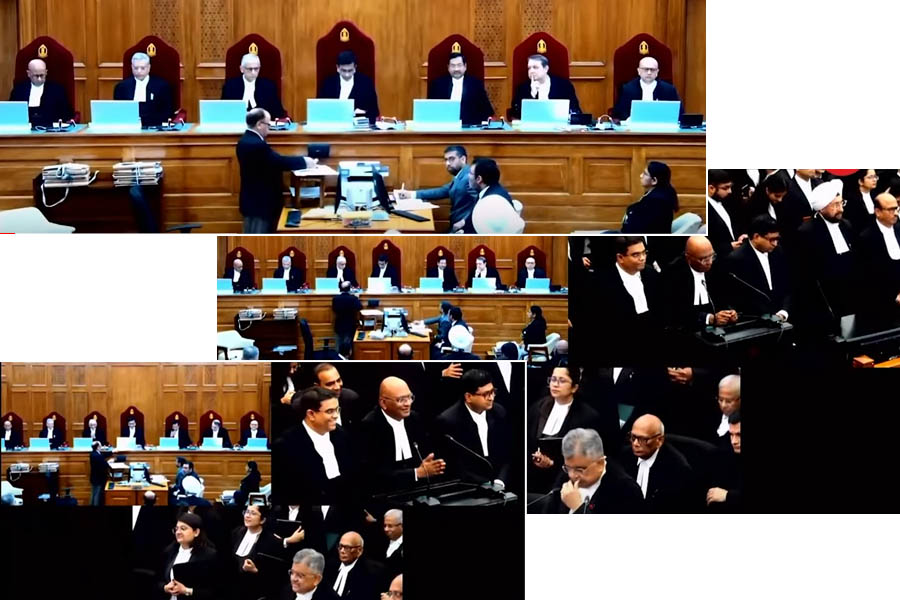
In a historic judgment on March 4, 2024, the Supreme Court of India delivered a landmark verdict, overturning the 1998 PV Narasimha Rao Judgment which granted immunity to legislators in bribery cases. This decision, delivered by a Constitution bench led by Chief Justice of India DY Chandrachud, with Justices AS Bopanna, MM Sundresh, PS Narasimha, JB Pardiwala, PV Sanjay Kumar, and Manoj Misra, marks a pivotal moment in Indian jurisprudence.
The 1998 judgment had provided MPs and MLAs with the ability to claim immunity from prosecution under article 105(2) and 194(2) of the Constitution when accused of accepting bribes. However, the Supreme Court's unanimous decision on March 4th signaled a departure from this precedent, asserting that such immunity cannot be claimed in cases of bribery.
The court's verdict, meticulously articulated through a series of conclusions, highlighted the grave danger of perpetuating errors in judicial decisions. It emphasized the need for a reconsideration of past rulings in light of evolving legal interpretations and societal norms. The court also underscored the importance of upholding integrity in public life and safeguarding parliamentary democracy from the corrosive effects of corruption.
One of the crucial aspects addressed in the judgment was the interpretation of parliamentary privileges and immunities conferred by Articles 105 and 194 of the Constitution. The court elucidated that while these privileges are essential for the functioning of the legislature as a whole, they cannot be invoked to shield individual members from criminal prosecution, particularly in cases involving bribery.
The court's reasoning dismantled the notion that accepting bribes could be considered an essential aspect of a legislator's duty. It emphasized that bribery undermines the very essence of democratic governance by compromising the integrity of legislative processes and eroding public trust in elected representatives.
Furthermore, the verdict clarified the scope of parliamentary privileges concerning actions taken by legislators, including voting and speaking in the house or committees. It unequivocally stated that bribery falls outside the realm of protected actions and must be subject to judicial scrutiny and prosecution.
The judgment also addressed the intricate interplay between parliamentary privileges and the jurisdiction of courts, emphasizing that the prosecution of criminal offenses should not be hindered by claims of immunity. It emphasized the distinct spheres of authority between the judiciary and legislative bodies, reaffirming the judiciary's role in upholding the rule of law and combating corruption.
In conclusion, the Supreme Court's decision to overrule the 1998 order granting immunity to MPs and MLAs in bribery cases represents a significant step towards strengthening democratic institutions and combating corruption in India. By reaffirming the primacy of the rule of law and accountability in public life, the court has upheld the principles of justice and integrity that are fundamental to a thriving democracy.
Message To The Readers:
Landmark Judgment: The Supreme Court of India delivered a historic verdict on March 4, 2024, overturning the 1998 PV Narasimha Rao Judgment that granted immunity to legislators in bribery cases. This decision was rendered by a Constitution bench led by Chief Justice DY Chandrachud and marked a significant departure from previous legal precedent.
Rejection of Immunity: The court unanimously held that MPs and MLAs cannot claim immunity from prosecution under article 105(2) and 194(2) of the Constitution in cases of bribery. It emphasized that bribery undermines democratic processes and erodes public trust in elected representatives, highlighting the importance of accountability in public life.
Clarification of Parliamentary Privileges: The judgment clarified the scope of parliamentary privileges, asserting that actions such as accepting bribes cannot be considered essential to a legislator's duty. It emphasized that privileges should be tethered to the collective functioning of the legislature and cannot shield individuals from criminal prosecution.
Upholding Rule of Law: By overruling the previous judgment and affirming the jurisdiction of courts to prosecute bribery cases involving legislators, the Supreme Court upheld the rule of law and reaffirmed the judiciary's role in combating corruption. This decision signifies a commitment to integrity, accountability, and the principles of democratic governance in India.
Thank you for reading: globalpostheadline.com | If you want to advertise your Company, Events, Movies, Products, Hotels, Travel Packages Let us know